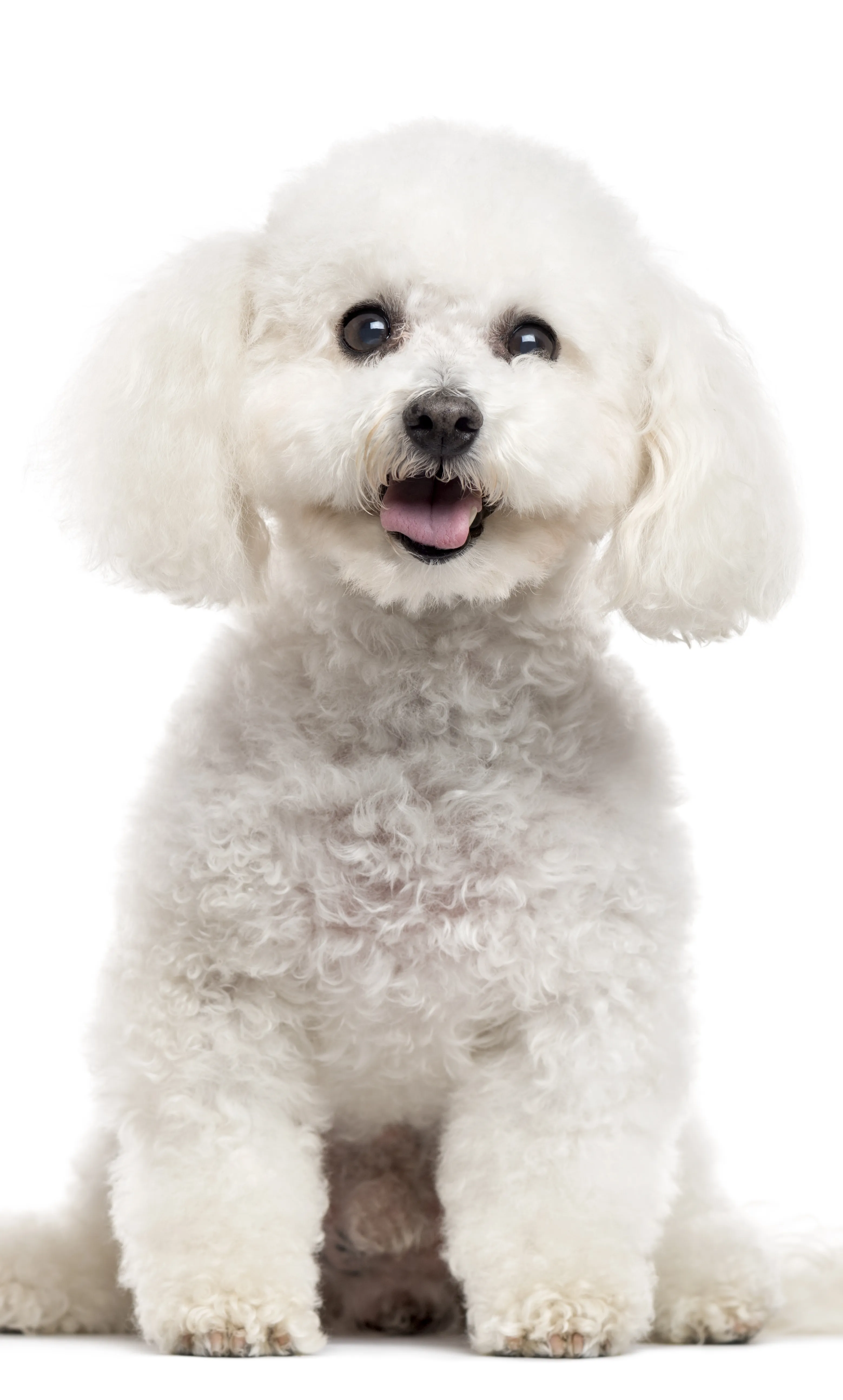Because it is a very active and energetic dog, it is necessary to give it a lot of attention: play games often, take it for a walk. Furthermore, he is a dog that needs space and places to spend his energy. It is also ideal to encourage your bichon to do mental activities, tasks that they love and that make them very satisfied. Brushing their coat and shaving at least three times a year is recommended to keep their coat well-groomed and tangle-free.
One of the main health concerns of the Bichon Frize is with respect to patellar dislocation. As they are very active dogs and love to run around, it is necessary to be careful with this health problem that is usually hereditary. In addition, this dog has a certain facility for developing eye diseases, especially cataracts over the years. Your tear can also stain your fur and cause a bad smell, so you need to clean your eyes often with specific products. Because it is a very furry pet, its hair can fall into its eyes and this can cause some vision problems, with corneal ulcer depending on the case. In addition, it is very important to have regular examinations of the eyes and knees of the Bichon Frize dog, talk to your veterinarian about this. There are other diseases that the Bichon is predisposed to and needs more attention. They often also have urinary bladder problems and are dogs with a certain sensitivity to vaccines. Another health issue that you need to be aware of is that they are dogs that can have a lot of allergies and exaggerated immunity responses.
They were the pets of a French king, Francis I, and also of his successor, Henry III. There are stories that Henry III carried his dog Bichon Frize on his shoulder, inside a basket, everywhere, because he was so passionate about the breed. In addition, they came to be used as a bargaining chip by sailors because of their success.
Bichóns for a long time were loved by powerful people, being at the time an exclusive breed of aristocrats. Over time, many of them were abandoned on the streets and adopted by circuses, who saw many advantages in this breed: intelligent and loyal, they obeyed and learned very easily, giving an extra touch to circus performances. Although the breed exists in Brazil, it is much less popular than the poodle.
Bichon Frize puppies are considered intelligent animals and easy to train. It is possible to train them with ease, without many complications. That's because they really like to learn tricks, because they feel very connected to their human parents, and because they love to do what is asked of them. However, as they are very docile and sensitive dogs, care must be taken when teaching tricks or starting training. It is necessary to know how to handle the pet, but you have to pay attention not to be rude, yell or act incoherently with him, because this can scare the animals of Bichons and make learning even more difficult.
Another issue that makes the Bichon Frizes are considered very intelligent dogs is the fact that they managed to survive on the streets very easily when they became no longer so interesting to the nobles. They are commonly trained for obedience and trick learning competitions.
The Bichon Frisé is a cheerful and playful dog that is very affectionate and loves company. Sensitive, affectionate and kind, he gets along well with strangers, other pets and children. It is a very docile dog. However, because of his enormous energy, he can be quite a barker while playing. It is necessary to direct your pet properly so that he is not inconvenient with so many barking.
With visitors, he is often very receptive, never hiding and always wanting to make friends. He is not very protective of his humans, as he considers almost everyone to be his friend.
Its coexistence with other animals is usually peaceful, but the bichon puppy needs to be properly socialized for this to happen as expected.
In general, Bichon Frize dogs live between 12 and 13 years. However, if they are well taken care of, they can reach a more advanced age, in the range of 15 to 18 years. To do this, take your dog to the veterinarian frequently and treat any health problems, in addition to always keeping his vaccinations up to date and feeding him correctly.
